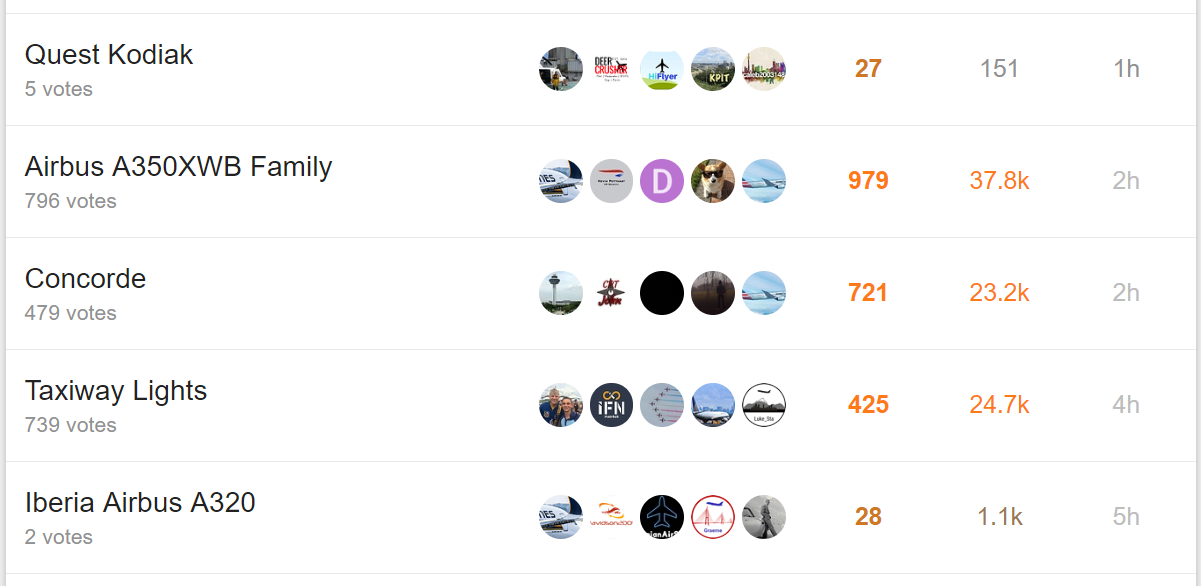Discourse as an ideation platform
People sometimes ask how Discourse compares to the likes of UserVoice and other ideation platforms, where ideas get voted on and the best ideas rise to the top.

One thing many companies find appealing with these platforms is that a vote-powered ranking of prospective features somehow relieves them of certain product management responsibilities because the customers are now taking on some of that responsibility. We believe this is solving the wrong problem.
The highest ranked idea should by no means be equated to the most needed feature, nor the most wanted. Just because 1000 customers think your car factory should start producing chocolate does not make them right nor does it make chocolate less awesome. Regardless, Discourse works fine, as-is, capturing this basic data point -- people love their chocolate!

In YC's Essentials Startup Guide, the fundamental advice to "talk to your users/customers" is mentioned a total of 7 -- that's right, seven -- times.
Half the advice I give to startups is some form of "talk to your customers."
— Paul Graham (@paulg) August 18, 2017
Discourse embodies this mantra and lowers the the barrier to entry for any kind of discussion with your customers -- and your team, too. Asking people what they want might provide some useful clues, but you'll be spending a lot of time playing a game of deduction. You'll get far richer feedback by having your users talk amongst themselves, and with your team, about a wide assortment of topics, guided by some select categories of discussion such as features, troubleshooting, UX improvements, bugs and so forth. Discourse makes it convenient for your product managers and stakeholders to work collaboratively alongside your users in a manner more resembling a bustling town square rather than a sterile research lab.

The majority of public Discourse forums deal in some kind of open product development. While we do support up-voting functionality similar to UserVoice with our Voting plugin, most communities don't need it.

Any product community that solicits feedback from users will commonly practice some form of complaint-driven development.
Discourse takes a holistic approach to ideation. In the Discourse model you don't just put a spotlight on the "most wanted", you discuss anything -- exchange tips on stuff you already like, suggest things that could work slightly better, or are hard to understand or maybe even straight up broken. And unlike vote-focused idea blurbs with drive-by comments, Discourse's sustained discussions and minimum word counts enable users and your team to collaborate on a crudely formed idea until they're left with the outline of a reasonable, if informal, specification.
You'll see this pattern repeating itself in many of our feature discussions here on Meta.
Other notable communities excelling at open product development include:
Eve Tech
A device shop whose main selling point is that their products are designed by their community. They employ Voting to a small extent, but the bigger story is that their entire forum is one giant roadmap discussion.
Soylent and Huel
https://discourse.huel.com/https://discourse.soylent.com/
Two similar product lines with a similar product strategy: Let users talk about any experience, good and bad, and embrace the bad (not every body takes in a liquid meal with ease) with honest discussion. Show me a focus group that would provide these companies with anywhere near the same amount of data and I'll eat my hat!
EVE Online
It's hard to pick among game forums as game makers are one of our biggest customer segments and they've been at the forefront of community-informed design for decades. Games lend themselves incredibly well to discussion about their rules, characters, aesthetic, balance, story, etcetera. A very common way of soliciting feedback from game testers is to silently watch the tester play your game and take notes. Afterwards you have a discussion about the play experience. An open forum is like that second part but scaled up 1000x.
Faster Horses or Battery Powered Scooters
You've probably heard this quote before:
If I had asked people what they wanted, they would have said faster horses.
~ Henry Ford (according to legend, and that's good enough)
This anecdote neatly encapsulates Discourse's approach to open product development. You don't arrive at a better design by pitting hundreds of features against each other in a vote-war. All of those features are parts of a greater whole. There's only so much to be gained by having people shout their ideas at you. What you really want is meticulous collaborative discussions with a beginning, a middle and an end. You're not always gonna get a happy ending, but if the story is good enough someone else will eventually tell it again -- this time with a twist.
